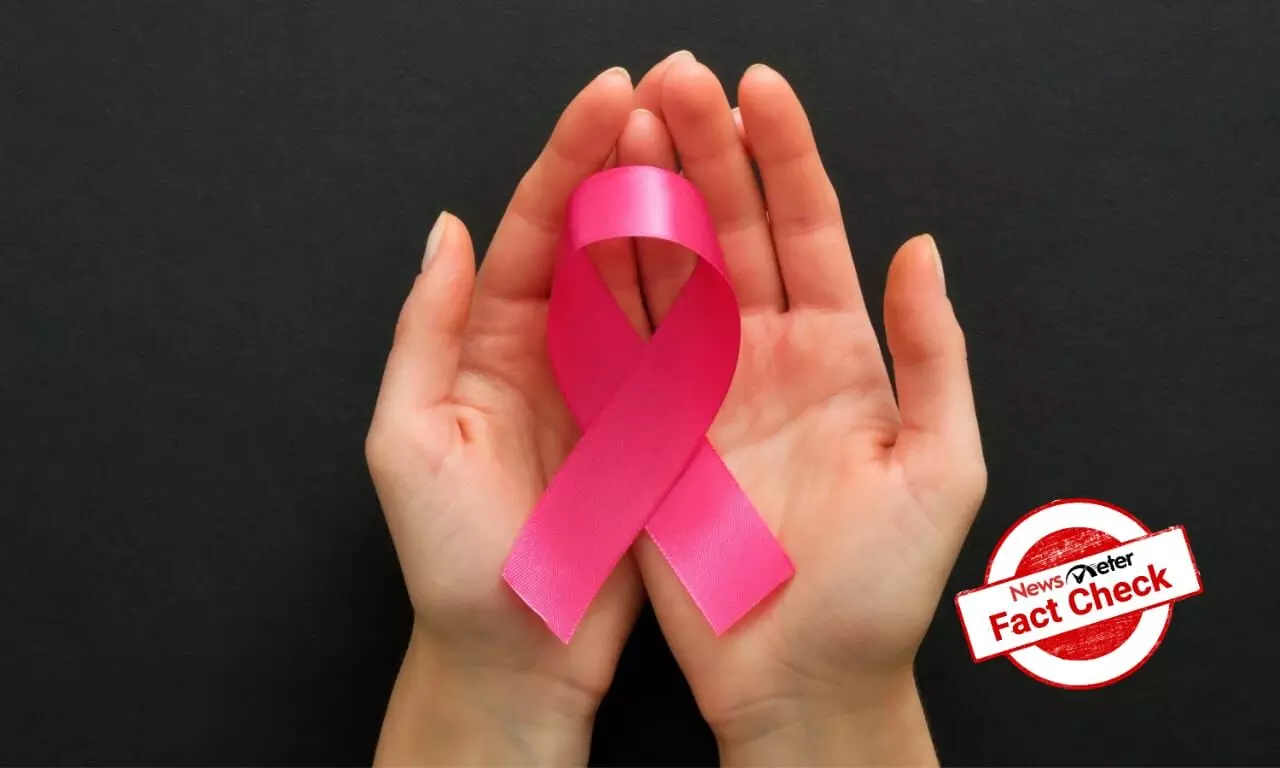Fact Check: Can the deworming drug fenbendazole cure cancer in humans?
No scientific evidence to back the claim.
By Sunanda Naik
Hyderabad: A Facebook post is being widely shared on social media with the user claiming that a deworming medicine called fenbendazole can potentially cure cancer in humans.
The man in the viral video could be seen saying, “I got a call from an animal veterinarian in western Oklahoma, who is a college friend and a family friend. He told me this crazy story about a scientist who has been doing cancer research on mice. She had hundreds of mice, and some had cancer all over the body. Her mice population was down within intestinal parasites and she had no choice but to save her research. She gave all of her mice fenbendazole. If you go to any zoo in the world, they bring in fenbendazole by a truckload front-end loader, head-high piles in bays because they give them to every single animal. And she did, and unfortunately or fortunately for all of us, she she accidentally killed all the cancer.”
Fact Check
NewsMeter found that the claim is false.
What is fenbendazole used for?
Fenbendazole is known as a treatment for gastrointestinal parasites. According to PubChem, “Fenbendazole is a member of the class of benzimidazoles. A broad-spectrum anthelmintic, it is used, particularly in veterinary medicine, for the treatment of nematodal infections. It has a role as an anti-nematodal drug. It is used against a number of gastrointestinal parasites including giardia, roundworms, hookworms, whipworms, the Taenia genus of tapeworms, pinworms, aelurostrongylus, paragonimiasis, strongyles, and Strongyloides. Fenbendazole is approved to be administered under veterinary to sheep, cattle, horses, fish, dogs, cats, rabbits and seals.”
Can fenbendazole cure cancer?
A study on ‘Anthelmintics as Potential Anti-Cancer Drugs’ found no definite evidence of anti-cancer effects in human patients so far. A clinical trial with fenbendazole is impossible because it is not permitted for human use due to its toxicity. Anti-cancer effects of fenbendazole, albendazole, and mebendazole have been known for their reaction against cancer cells in vitro for a long time.
More research is needed to come to a conclusion.
Another study to find the anti-cancer effects of fenbendazole on 5-fluorouracil-resistant colorectal cancer cells states that further studies are needed to identify sensitive and resistant cancer cell types to facilitate cell type-specific treatment with benzimidazole.
Moreover, it should be noted that both the Food and Drug Administration (FDA) and the European Medicines Agency (EMA) prohibit fenbendazole for human use. The recommended dosage for animals is 5 mg/kg, which is more than 100-fold acceptable daily intake for human safety (40 micrograms per kilogram body weight).
Actual toxicities in cases of acute hepatitis due to self-administration of fenbendazole were reported.
According to an article in the Brighter World, in an interview with AFP, Sheila Singh, director of McMaster’s Centre for Discovery in Cancer Research said, “Seeing promising data in a dish of cancer cells is the beginning.”
“But to say that something could cure cancer is simply unscientific because there’s no data that backs up that claim whatsoever,” she added.
Lastly, regarding a cure for cancer, WebMD states that, unlike other diseases, cancer has its own language. There is no cure for it but there are treatments that may be able to cure some people for some cancers.